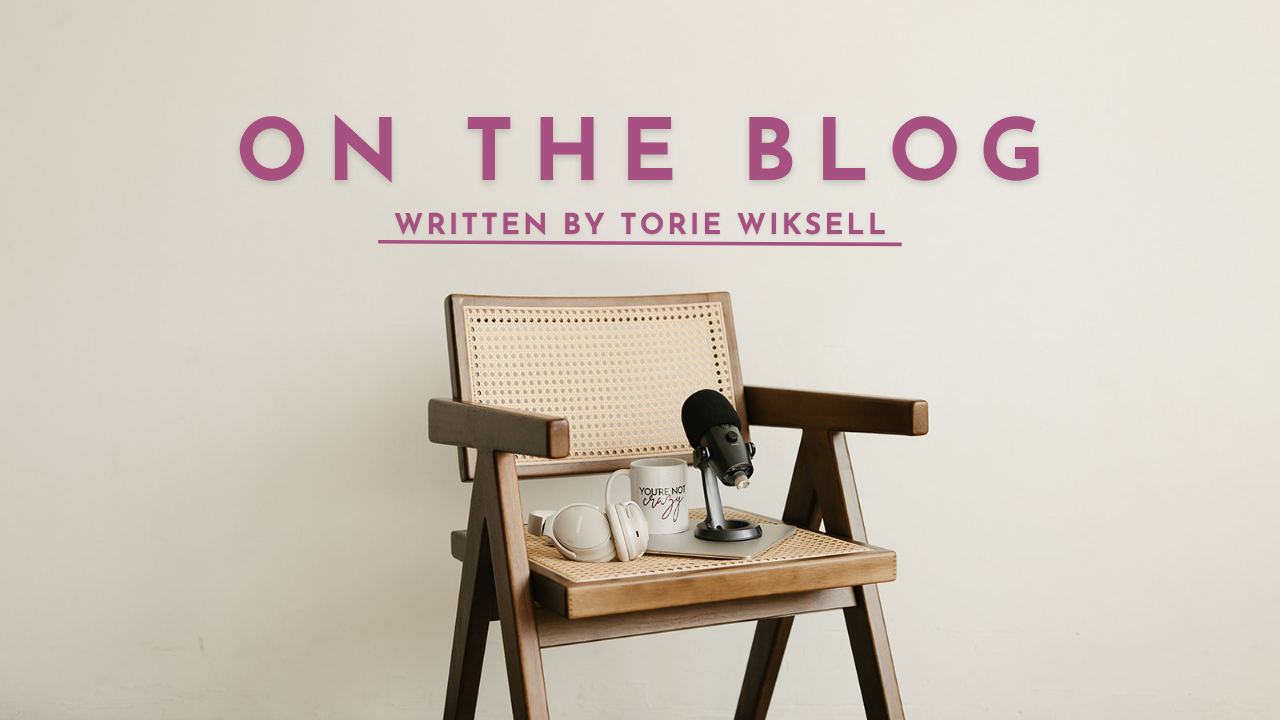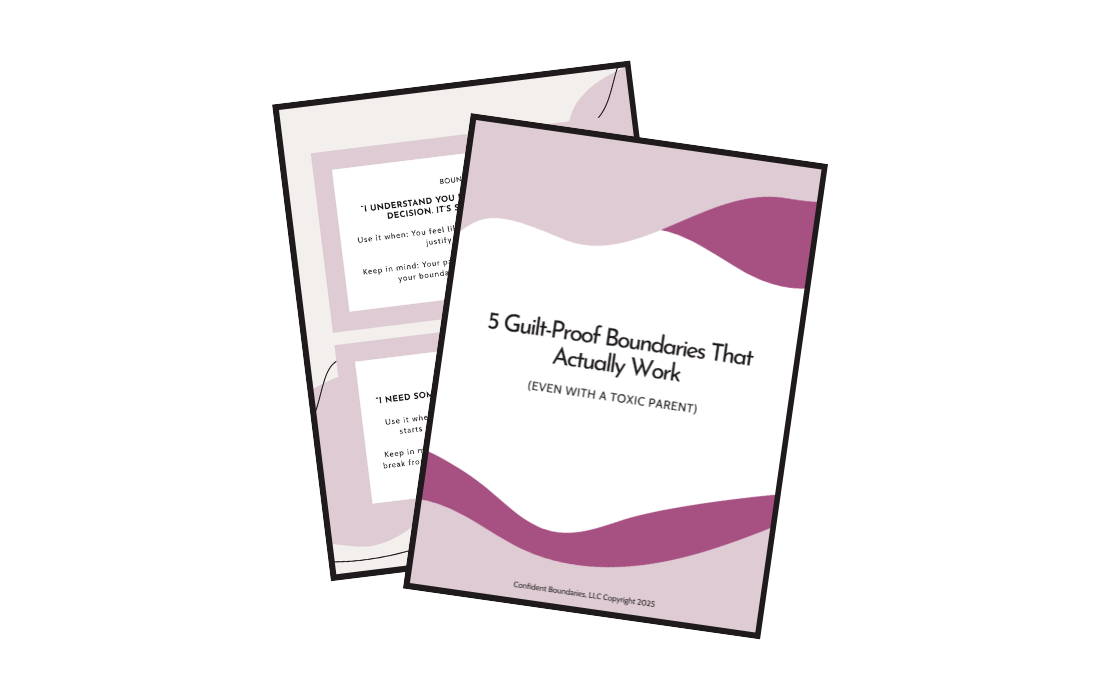
7 Signs of a Narcissistic Mother
No, It’s Not Just “Normal Family Stuff” (No Matter What She Tells You)
If your mom was the kind of parent who could turn the spotlight on herself in any situation, made you feel like the villain for having boundaries, or expected you to be her emotional support human since age six… you’re probably not just dealing with a difficult mom. You may actually be dealing with a narcissistic one.
But here's the thing: daughters of narcissistic mothers often don’t realize how toxic the dynamic was until way later. Why? Because dysfunction was your normal. Because she could turn it on and off so easily. Because everyone else saw her as “so great” or "the perfect mom." Because anytime you tried to name what was happening, you were called the problem.
Let’s change that.
Here are 7 signs your mom might be a narcissist—and how it explains the guilt, anxiety, and exhaustion you’ve been carrying for way too long.
1. She made everything about her. Always.
Fun (sarcasm) thing about narcissist mothers- they have a talent for making everything about themselves. Your college graduation- she demanded the attention (maybe by being the life of the party, maybe by having a complete meltdown). Your wedding- all about her and her drama. Having kids- she deserves to be a grandma. All of it.
Narcissistic mothers are emotionally immature parents who center every interaction around themselves, often at your expense. You probably learned quickly that you were supposed to orbit around her, not the other way around.
2. She demanded loyalty—but gave none in return.
You were expected to be “the good daughter.” But when you needed her support? Crickets. Worse—she might have feigned support and then shared all the private details of your life with others to paint herself as the martyr. She might’ve even taken other people’s sides, especially if it made her look better. She probably pitted family members against each other. Narcissistic moms love the idea of family loyalty… until it’s time to be loyal to you.
3. She couldn’t handle your boundaries. At all.
Setting boundaries with parents is hard. Setting boundaries with a narcissistic parent? That can feel like declaring war. Whether it was saying no to a visit, asking her not to comment on your appearance, or deciding to skip the family group chat, the moment you tried to prioritize your well-being, she flipped the script. Cue the guilt trips, silent treatment, or full-blown rage. Narcissistic mothers treat boundaries as betrayal—because they believe they’re entitled to you.
4. She played the victim (especially when you stood up for yourself).
One of the most painful dynamics daughters of narcissistic mothers experience is the constant reversal of roles. You try to express pain? Suddenly, she's the one who’s hurt. You pull back from toxic behavior? Now you’re “cruel,” “cold,” or “abusive.” Narcissistic mothers flip the narrative to make themselves the victim—because if they’re the victim, you must be the villain.
5. Her love came with strings attached.
Did you ever feel like your mom only loved you when you were performing—being successful, making her proud, making her look good? That’s dysfunction and manipulation, not love. Narcissistic mothers see their kids as extensions of themselves, not as separate human beings with their own thoughts, feelings, and needs. So if you made choices she didn’t like? Suddenly, you were punished with distance, rage, or shame.
This kind of love trains you to question every decision:
“Will this upset her?”
“Am I being selfish?”
“Am I the problem?”
No. You’re not the problem. You’re a person, not a puppet.
6. She manipulated through guilt, shame, or emotional chaos.
If your mom could cry on command, bring up her sacrifices anytime you disagreed, or randomly cut you off until you “apologized for what you've done”—you’ve experienced narcissistic control. It’s a mind game. And it’s meant to keep you emotionally enmeshed, always guessing, always apologizing, always shrinking yourself to keep the peace.
This is how daughters of narcissistic mothers get trapped in the “Am I the problem?” loop. It’s not a coincidence. It’s conditioning.
7. You never felt safe being fully yourself around her.
This one cuts deep. You’ve probably edited yourself around her your entire life. Held back your opinions. Hidden your joy, your pain, your truth. Because you knew—even if you couldn’t name it—that being fully you came with consequences. That there was only room for the version of you that she had created in her mind.
The bottom line:
If any of this feels uncomfortably familiar, I want you to hear me loud and clear: you’re not crazy, and you’re not alone.
This isn’t just normal family dysfunction.
This isn’t just “all moms are like that.”
This isn’t your fault.
Dealing with toxic parents—especially narcissistic mothers—takes a toll.
But healing starts with clarity. With truth. And with learning how to set boundaries that actually protect you, not just keep the peace.
If you’ve been nodding your head this whole time, it might be time to stop trying to fix the relationship—and start focusing on taking care of yourself.
That’s exactly what I teach inside the Confident Boundaries Membership: how to untangle yourself from the guilt, grief, and emotional chaos of a narcissistic parent—and create a life that actually is peaceful.
P.S. Ready to stop second-guessing yourself and start setting boundaries that stick? Watch my free workshop on setting boundaries with a parent you suspect has borderline or narcissistic personality disorder. It’ll give you the clarity, tools, and confidence to take your next step—without the guilt spiral.
You’re Not Crazy.
But you might have been gaslit by your parents.
Learn how to recognize the signs—and start rebuilding trust in yourself.
I hate SPAM. I will never sell your information, for any reason.



